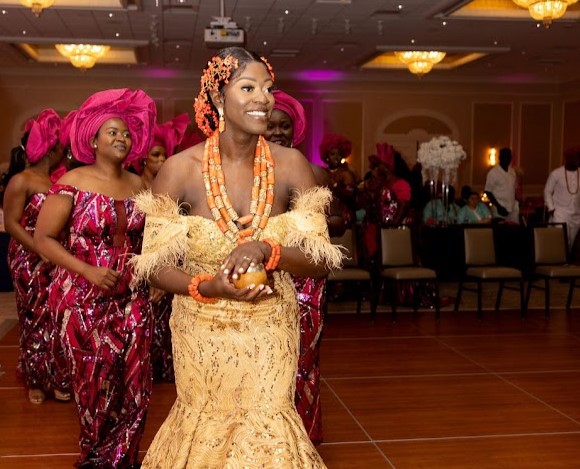
Igbo wedding traditions are rich in symbolism and cultural significance, reflecting the values and beliefs of the Igbo people. Among the many rituals that make up these celebrations, the palm wine ceremony stands out as a vital element, representing not only the union of two individuals but also the merging of families and communities. This ceremonial act, steeped in tradition, plays a critical role in the overall wedding festivities, encapsulating the essence of Igbo culture.
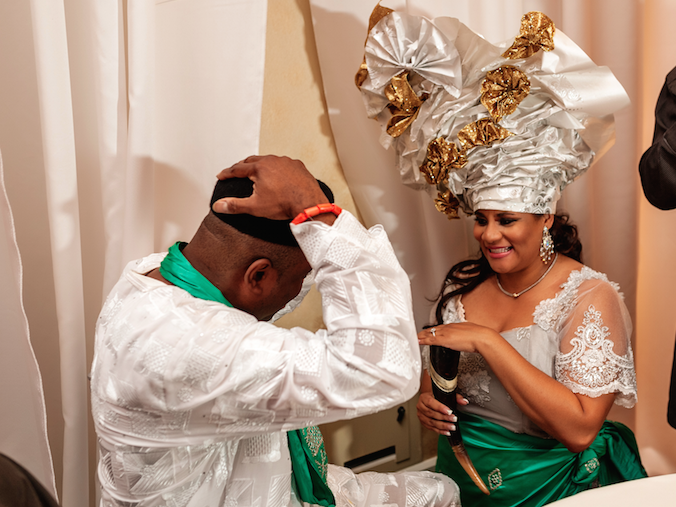
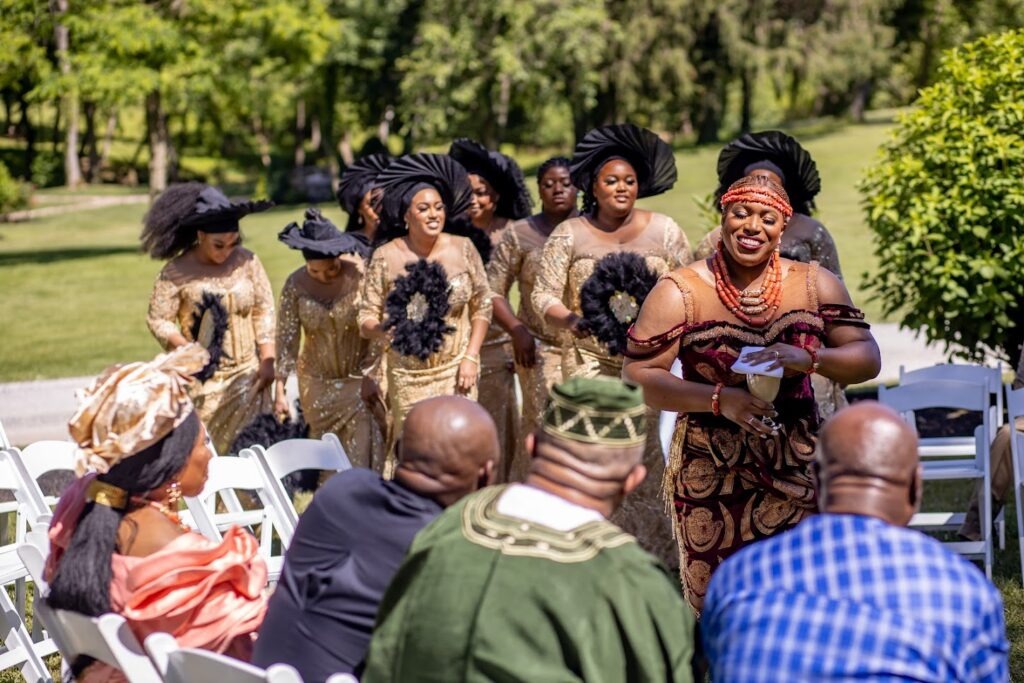
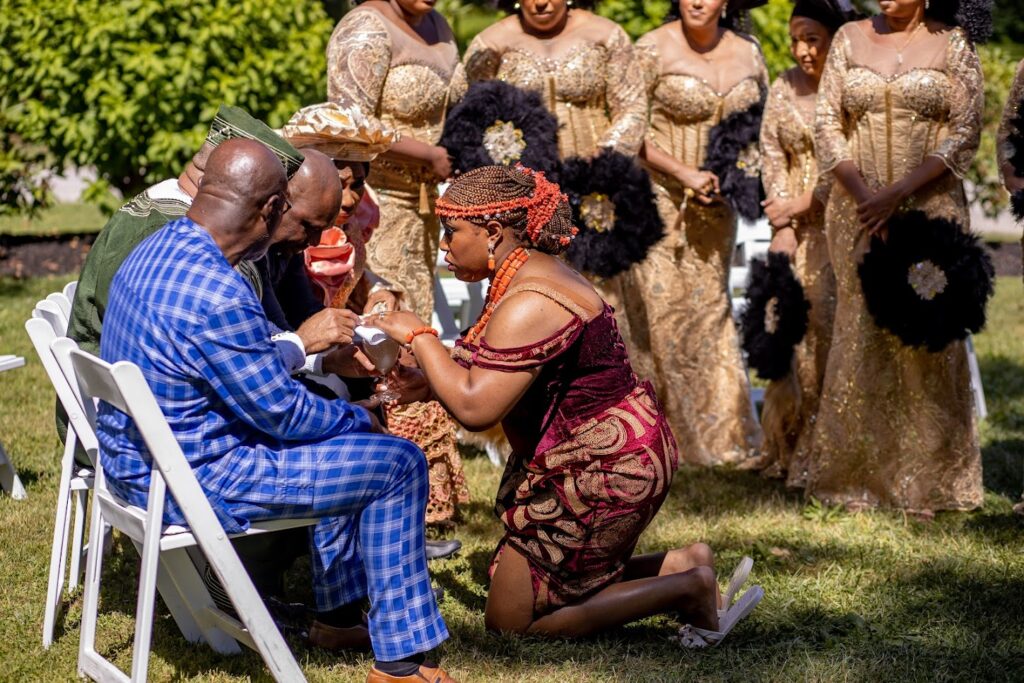

The Cultural Importance of the Palm Wine Ceremony
In Igbo culture, palm wine holds deep symbolic meaning. It is often referred to as “ofe” and is derived from the sap of palm trees. This traditional beverage is not just a drink; it represents joy, celebration, and hospitality.
The ceremony serves as a communal event, where family and friends gather to witness the union. It reinforces the ties between families and highlights the importance of community support in the marriage. The involvement of elders in this ceremony adds a layer of respect and significance, as they bless the couple and offer guidance for their journey ahead.
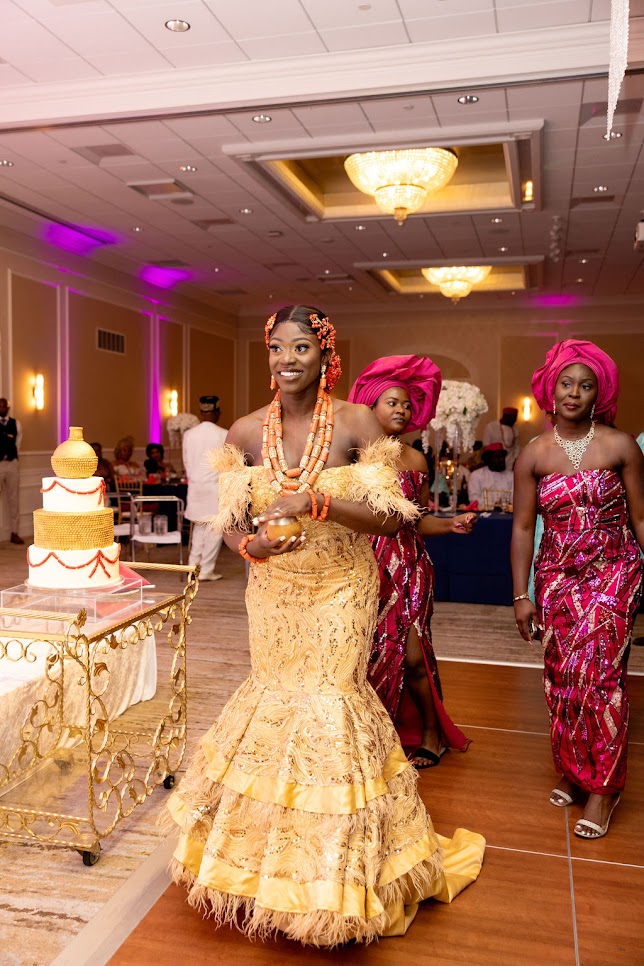
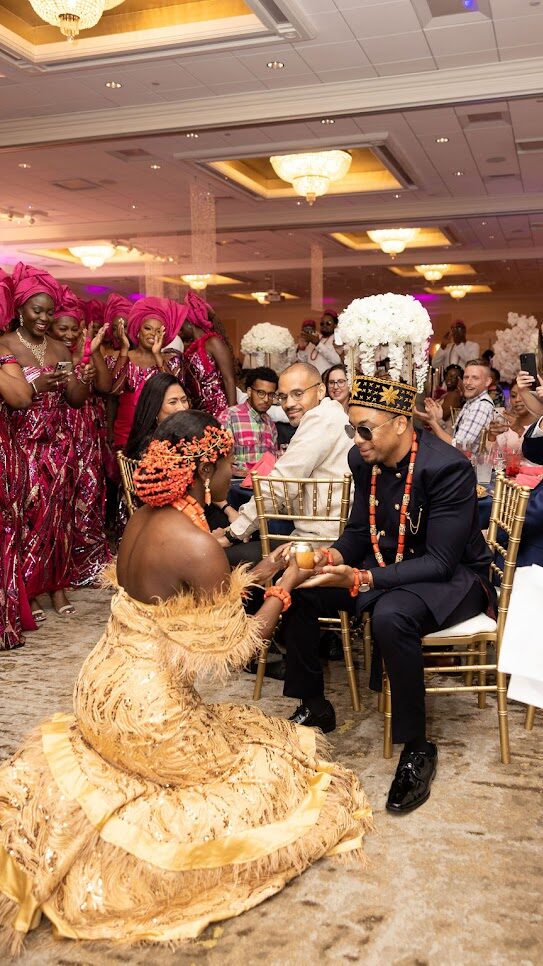
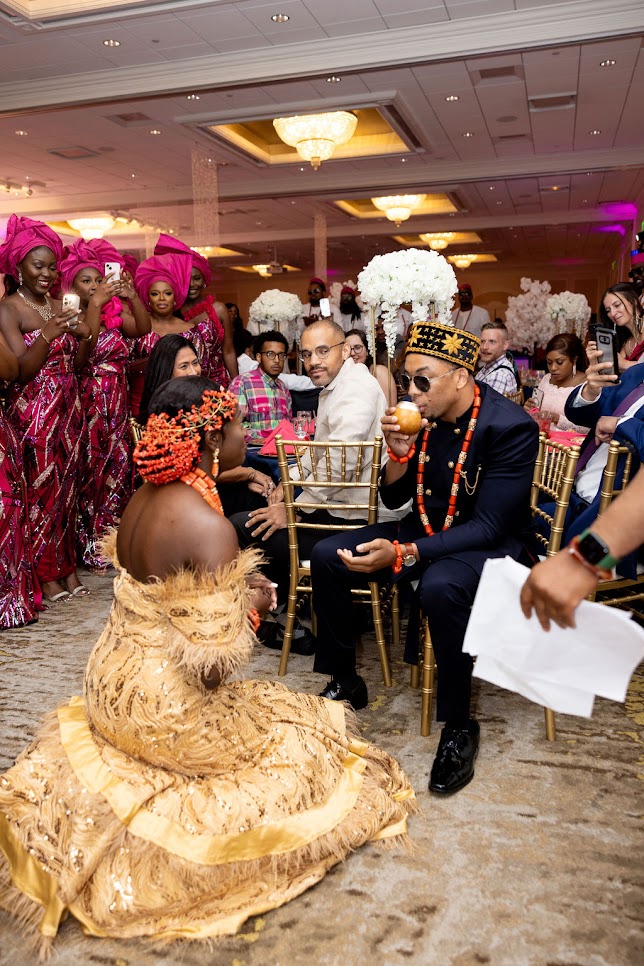

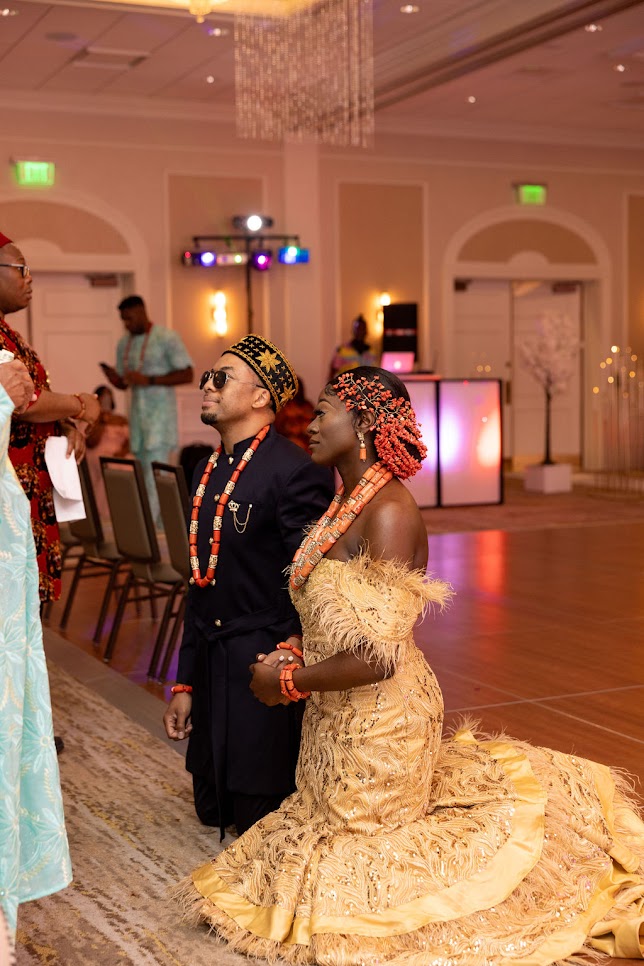
The Step-by-Step Process of the Palm Wine Ceremony
1. Introduction of the Ceremony
The palm wine ceremony typically occurs during the traditional wedding rites. It marks the beginning of the couple’s journey as partners in life. This ceremony is often announced with great fanfare, drawing attention from all attendees.
2. The Bride’s Search for the Groom
In a playful yet symbolic act, the bride is sometimes “sent” to find her groom among the guests while holding a cup of palm wine in her hand. This light-hearted search reflects the excitement and anticipation of the day, as well as the bride’s commitment to her new role.
3. The Groom’s Role in the Ceremony
Once the bride finds her groom, she takes a sip of the palm wine and then presents her groom with the remainder. This act is significant, as it signifies her readiness to care for him and her acknowledging his importance in her life. The bride’s presentation of the palm wine to the groom is often met with cheers and encouragement from the guests. Once the groom has the palm wine in his hand, he drinks the entire cup, puts money in the cup and hands the cup back to his bride.
4. Blessings from the Elders
After the couple has exchanged palm wine, elders from both families offer their blessings. These blessings are not merely formalities; they are heartfelt wishes for a prosperous and happy marriage. This moment emphasizes the community’s support and the importance of familial bonds in marriage.
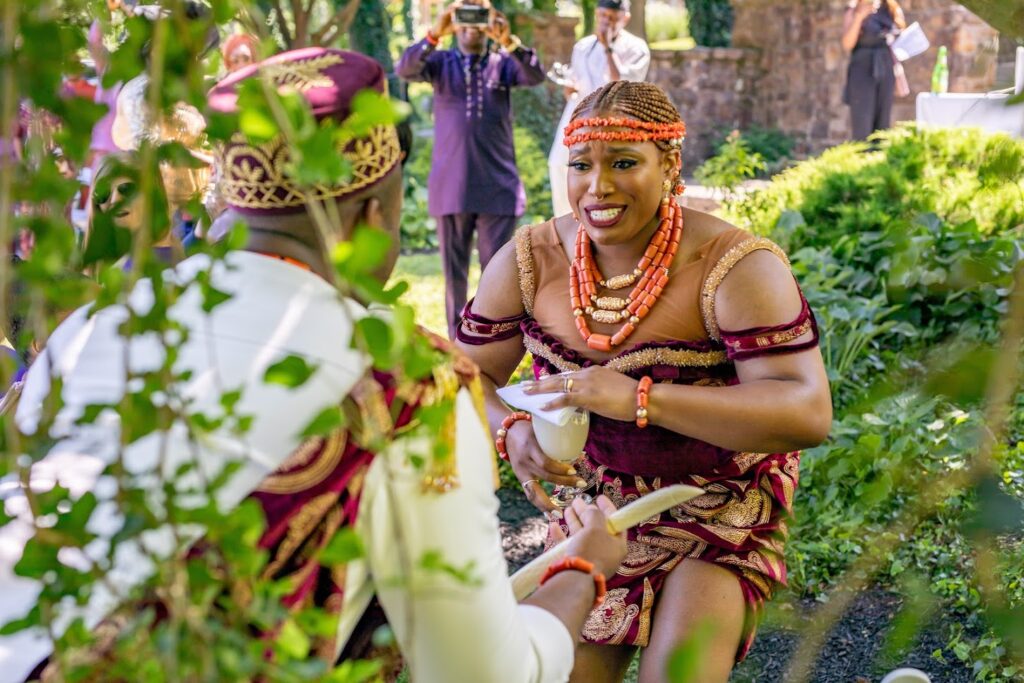
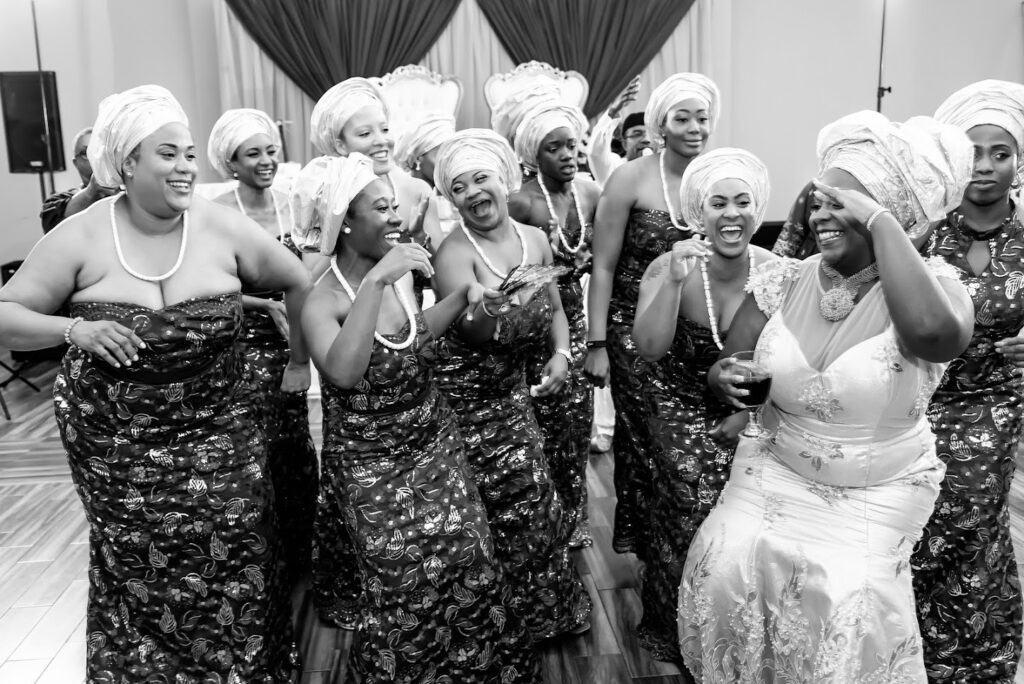
Modern Interpretations and Adaptations of the Palm Wine Ceremony
While the palm wine ceremony remains a cherished tradition, modern couples often adapt it to fit contemporary lifestyles. Some may choose to simplify the ceremony or integrate it into larger wedding celebrations. Despite these changes, the core essence of the ceremony—celebrating love, unity, and family—remains intact.
Many couples are also opting for unique presentations of palm wine, incorporating personalized elements that reflect their individual journeys and relationships. This modernization serves to keep the tradition alive while allowing for creativity and personal expression.
The Emotional Impact of the Palm Wine Ceremony
The palm wine ceremony is not only significant in a cultural sense but also evokes strong emotional connections for the couple and their families. It provides a moment of joy and celebration, reinforcing the bond between the bride and groom. The communal involvement in this ceremony fosters a sense of belonging and shared happiness among all attendees.
Family members often share stories and anecdotes, reminiscing about their own experiences, which adds to the emotional depth of the ceremony. This collective celebration strengthens family ties and emphasizes the importance of community support as the couple embarks on their new journey together.
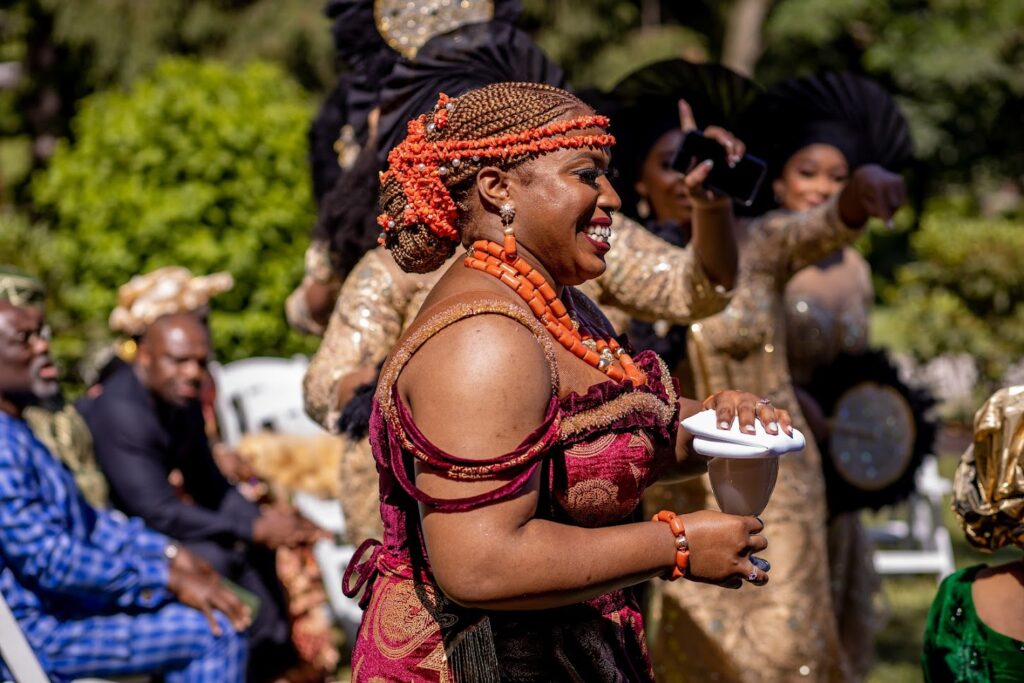
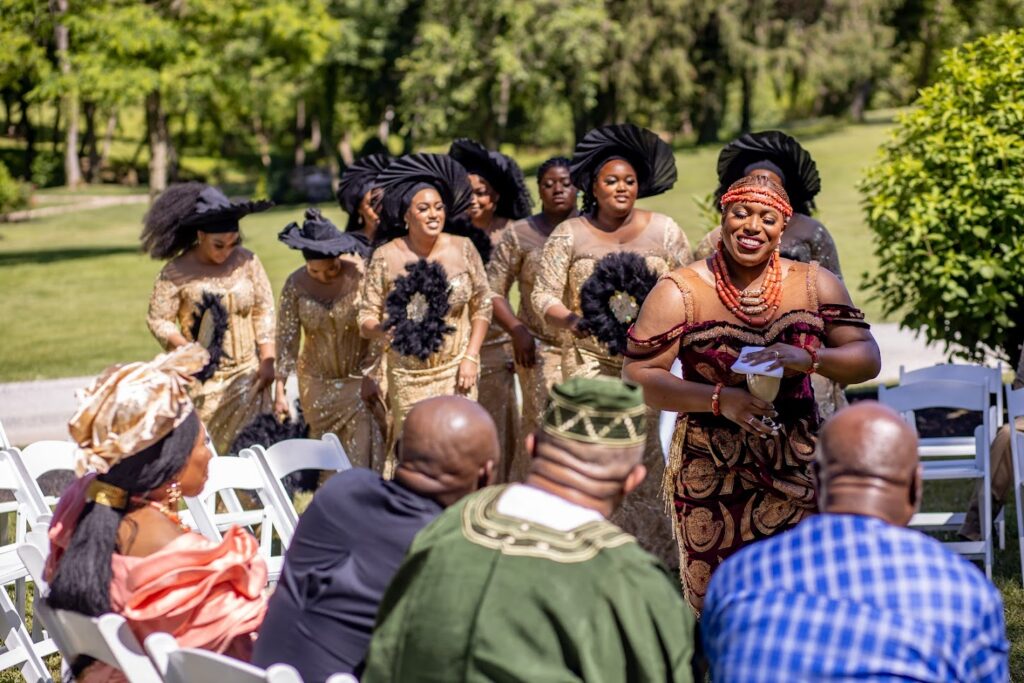
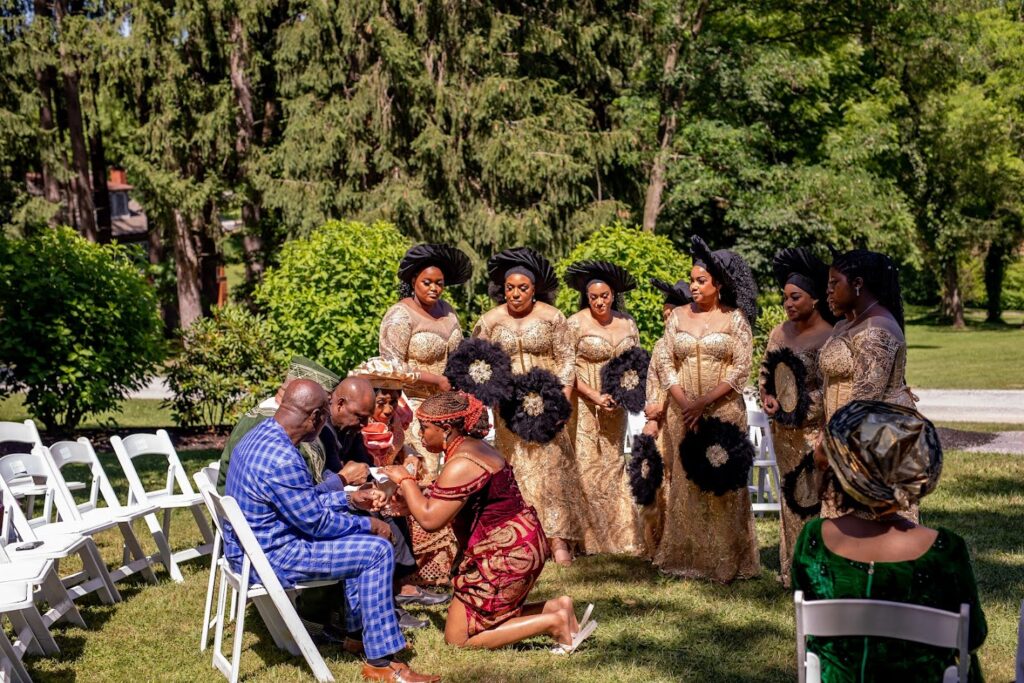
In summary, the palm wine ceremony is a cornerstone of Igbo wedding traditions, symbolizing love, unity, and family. It encapsulates the essence of what it means to come together as partners in life, supported by community and familial bonds. The palm wine ceremony serves as a beautiful reminder of the rich cultural heritage that continues to shape Igbo weddings today.
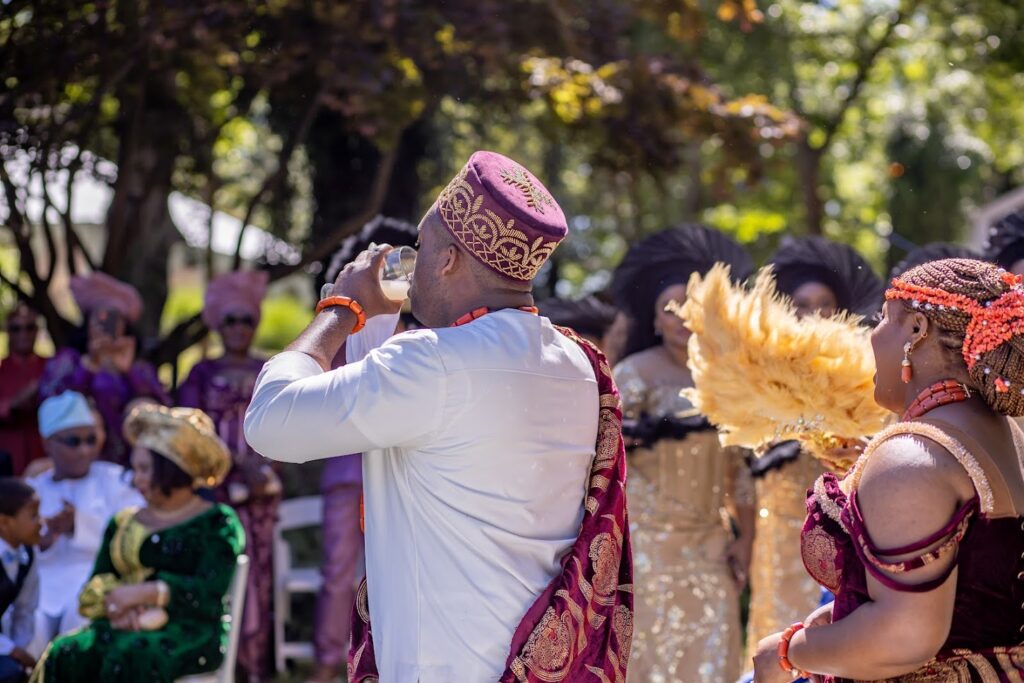
Want to dive deeper into the richness of Igbo wedding traditions? Check out our blog post, ‘The Ultimate Guide to Nigerian Wedding Traditions for Igbo Weddings,’ to explore more cultural practices that make these celebrations truly unique. Share your thoughts or experiences with the palm wine ceremony in the comments below, and let’s celebrate the beauty of Igbo culture together!







